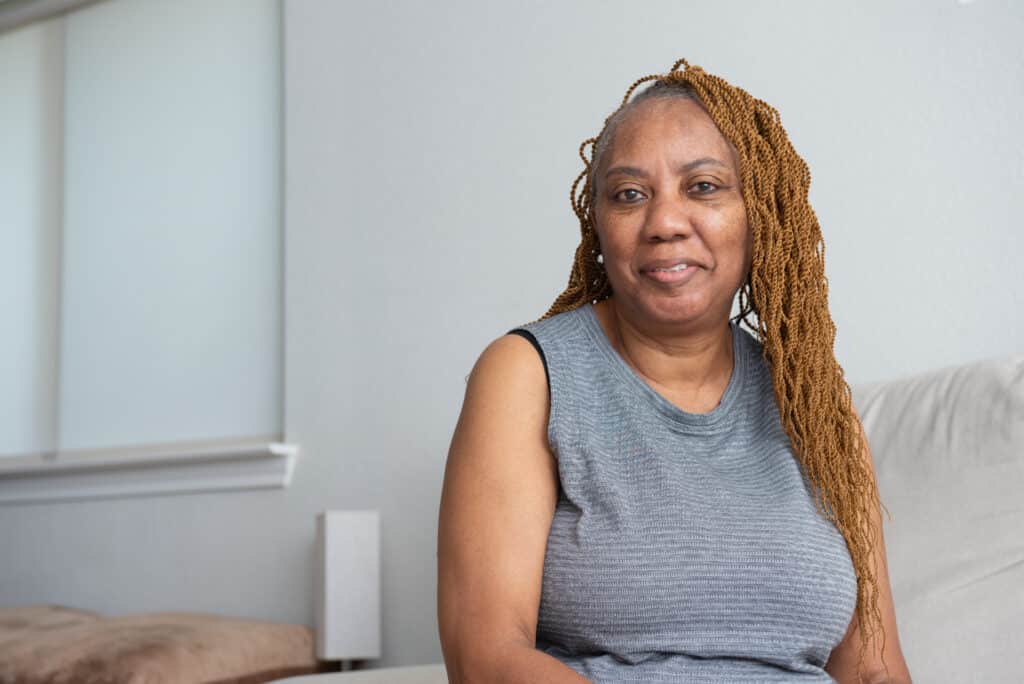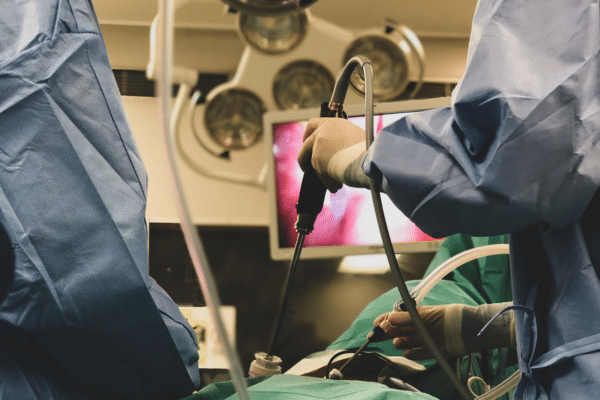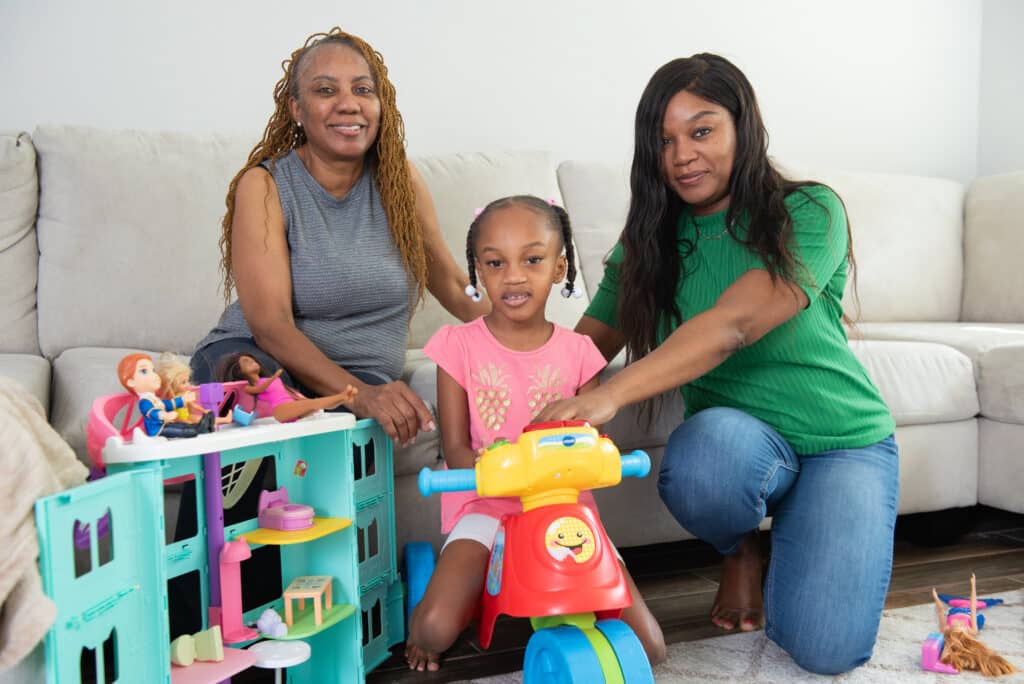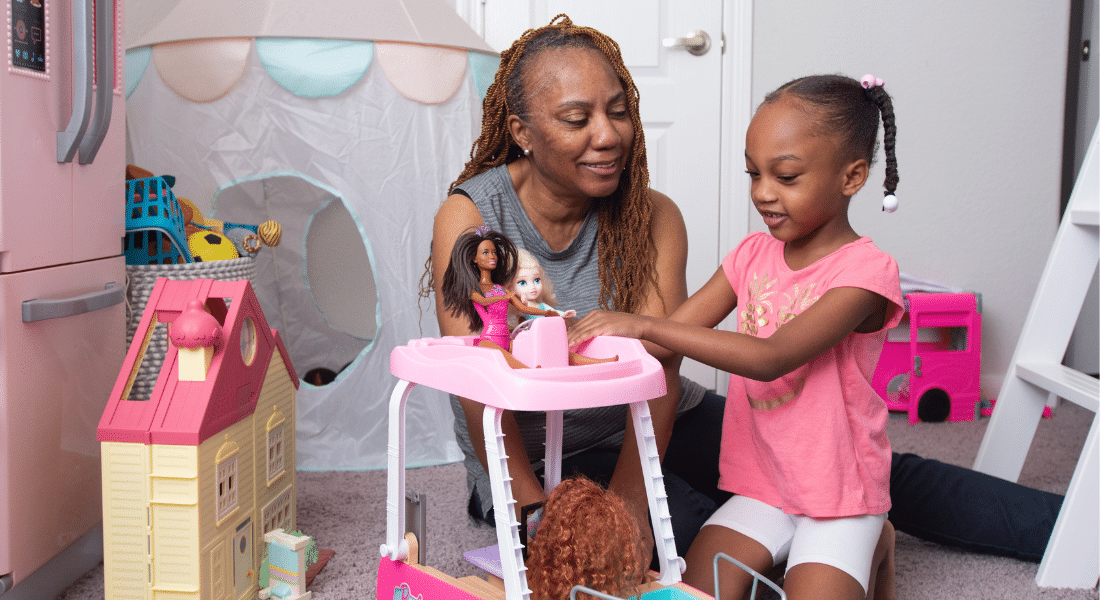Dorothy Reed preaches the importance of colon cancer screenings after her latest colonoscopy revealed a polyp too big to remove without surgery.
But thanks to a minimally invasive “keyhole” procedure at Methodist Charlton Medical Center, the 64-year-old from Dallas is right back where she belongs, spending precious time with her family.
“I am so grateful to be back doing what I love,” Dorothy says, “keeping up with my grandbabies.”
Those moments seemed fleeting in February when a colonoscopy turned up a polyp as large as a quarter and just as flat — troublesome enough to worry Dorothy’s doctor, Paul Hackett, MD, colorectal surgeon on the medical staff at Methodist Charlton.
“The larger the polyp size, the higher the risk of it turning into colon cancer,” Dr. Hackett says. “The risk increases significantly when the polyp is larger than 10 millimeters, and hers was 23.”

Smaller polyps can be easily removed during a colonoscopy, but Dorothy’s was large and flat against the colon wall.
FIRST POLYP FOUND
Dorothy got her first colonoscopy at age 59, and the results were normal. Her second screening, in 2019, revealed the first polyp, an overgrown clump of cells that forms in the lining of the large intestine.
“During this colonoscopy, they discovered a small polyp and were able to remove it during the procedure,” Dorothy says.
That’s not uncommon for someone Dorothy’s age: Up to 40% of middle-aged adults have polyps, which are often benign but can be an early warning sign for colon cancer. But that discovery meant she would need colonoscopies more often moving forward.
“At the time, I didn’t realize that I would need to undergo annual colonoscopy screenings now that I had tested positive for polyps,” she says.

Like many people, Dorothy delayed a health screening during the pandemic, a mistake she won’t make again.
WORRISOME DISCOVERY
Four years later, Dorothy underwent her third colonoscopy, this time with Dr. Hackett. He discovered a large polyp in Dorothy’s colon, on the upper, right side of the abdomen, what’s called the proximal transverse colon.
It wasn’t just the size of the polyp that was concerning. It was also very flat and resisted Dr. Hackett’s attempts to lift it away from the colon wall using a liquid solution.
“The safest method for removing a flat polyp is to lift it away from the colon wall before removing it to reduce the chance of tearing a hole in the wall of the colon,” he explains. “Failure to lift often happens with cancerous polyps that have grown into the lining of the colon.”
Once it became clear that the entire polyp could not be safely removed during the colonoscopy, Dr. Hackett took a sample of the polyp to send off for pathology.

Dr. Hackett removed the quarter-sized polyp using minimally invasive laparoscopic surgery.
HOME AFTER A FEW DAYS
Results of the biopsy revealed Dorothy had a type of polyp called a tubulovillous adenoma, which has properties of the type of adenomas that are more likely to become cancerous. While 50% of the population develops such polyps, less than 10% become cancerous.
“Dr. Hackett was very thorough when he met with my daughter and me to discuss the pathology results and surgical options,” Dorothy says. “I felt immediately confident I had the right surgical team and was eager to get it on the calendar.”
On June 9, Dorothy underwent surgery on her colon via a minimally invasive, laparoscopic approach. Using a camera and specialized surgical instruments, Dr. Hackett removed the section of her large intestine with the polyp. He then reattached her small intestine to the remaining colon.
“I stayed a few nights in the hospital and only experienced mild pain,” Dorothy says. “Now I’m back to walking the trails with my active 84-year-old mother and traveling.”

Dorothy cherishes her time with her granddaughter Liya Coleman and daughter LaToya Coleman.
SCREENING GETS DELAYED
Now a true believer in colon screening, Dorothy acknowledges that she waited too long before her first colonoscopy.
While 50 was once the suggested age for an initial screening, patients with an average risk for colon cancer are now advised to get screened at age 45. That’s because colorectal surgeons are now seeing more patients in their 30s and 40s with what’s called “early age” colon cancer.
Even though her close call had a good outcome, she hopes others will think twice before putting off a cancer screening.






